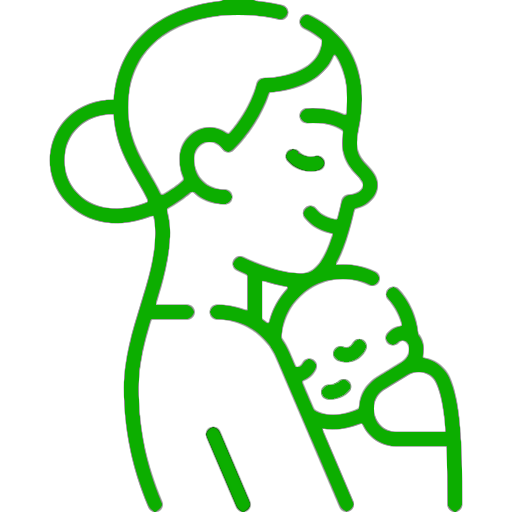The Most Interesting Pregnancy do’s may surprise you

Pregnancy is an exciting and joyful time. However, it can also be a stressful time for many women. This is especially true if they are pregnant while working full-time. If you are pregnant and work outside the home, you may find yourself feeling overwhelmed at times. You may feel like your life has become unPregnancy is an exciting and joyful time. However, it can also be a stressful time for many women.
This is especially true if they are pregnant while working full-time. If you are pregnant and work outside the home, you may find yourself feeling overwhelmed at times. You may feel like your life has become unmanageable. In this article, we will discuss some 9 Best Pregnancy Do’s May Surprise You.
1. Do take a multivitamin the key to success.
1. Vitamin B6
Vitamin B6 is required for the synthesis of neurotransmitters such as serotonin and dopamine.. Serotonin is responsible for mood regulation, while dopamine is involved in motivation and pleasure. When pregnant women are deficient in vitamin B6, they may experience symptoms like depression, anxiety, irritability, fatigue, and sleep disorders.
2. Folic Acid
Folic acid is a water-soluble B vitamin that helps produce red blood cells. Women who have low levels of folic acid during pregnancy can lead to birth defects.
3. Calcium
Calcium is a mineral that plays a role in many processes within the body, including muscle contraction, nerve function, blood clotting, and bone formation. It is necessary for healthy bones and teeth but can be difficult to obtain from food sources. In order to get enough calcium into your diet, you should consume dairy products like milk, yoghurt, cheese, and other dairy products. You may also find calcium supplements helpful if you are unable to eat dairy products regularly.
4. Iron
Iron is a mineral that helps in oxygen delivery throughout the body. It is needed for red blood cells to transport oxygen through the body. Women who are pregnant need iron to help their bodies produce haemoglobin, which carries oxygen around the body. Menstruating women also need iron to help make estrogen and progesterone. If you do not have enough iron in your system, you could experience fatigue, weakness, headaches, and dizziness.
5. Magnesium
Magnesium is a mineral that is involved in over 300 biochemical reactions in the human body. Your brain, muscles, nerves, heart, and bones require magnesium. It is also used to maintain normal levels of energy and concentration. Many people do not get enough magnesium in their diets, especially vegetarians. You can supplement your diet with magnesium-rich foods like leafy greens, nuts, seeds, whole grains, beans, and tofu.
2. Whatever You’re Into, Get Into Do get lots of sleep.
Sleep
Sleep is a natural state that we all need. However, pregnant women are often not able to get enough sleep due to their changing body shape and hormonal changes. A study conducted at the University of California San Francisco showed that pregnant women who slept less than 5 hours per night were more likely to have a preterm birth compared to those who got 7-8 hours of sleep. This was true even after controlling for other factors like age, race, smoking, alcohol use, weight gain, and stress levels.
3. Nothing Works Better Than a Do work out.
1. Walking
Walking is one of the best exercises that can be done while pregnant. It helps to strengthen your muscles and joints, especially those around your belly. You should try to walk at least 30 minutes per day, but if you are able to do more than that, then even better!
2. Yoga
Yoga is great for stretching out tight muscles and ligaments, improving balance, and strengthening your core. Try doing some yoga poses like downward-facing dog, warrior pose, and child’s pose.
3. Swimming
Swimming is a great way to get your heart rate up and burn calories. If you don’t have access to a pool, you can always go outside and jump into the water. Just make sure to stay safe and warm.
4. The top pick… Do eat seafood.
1. Fish
Fish are rich in omega-3 fatty acids like DHA and EPA. These fats have been shown to help reduce inflammation in pregnant women and may improve brain function in their babies. Omega-3s can also be beneficial for the mother’s heart health.
2. Shellfish
Shellfish contain zinc, iron, magnesium, vitamin B12, iodine, protein, and selenium. Selenium has been linked to improved immune system function, while zinc helps regulate thyroid hormone levels. Iodine is necessary for proper fetal brain development. Vitamin B12 supports healthy blood cells and nerve function. Iron is needed for red blood cell production, and magnesium is used for energy production. Protein is essential for muscle growth and repair.
3. Oysters
Oysters are high in zinc, copper, manganese, vitamin B12, and iodine. Zinc is critical for normal growth and reproduction. Copper is involved in many metabolic processes including the formation of hormones and enzymes. Manganese is important for bone growth and maintenance. Vitamin B12 is needed for DNA synthesis and neurological function. Iodine is needed for thyroid gland function.
5. Always the real thing, always do practice yoga.
Yoga Poses
Yoga poses are used to stretch muscles, improve flexibility and balance, and increase energy levels. They can help relieve stress, reduce anxiety, and promote relaxation. There are many different types of yoga poses that can be done throughout pregnancy. Some of these include:
- Standing Forward Bend (Uttanasana) – This pose helps strengthen your back and abdominal muscles.
- Child’s Pose (Balasana) – This pose relaxes your body and calms your mind.
- Seated Forward Bend (Paschimottanasana) – This posture stretches your spine and relieves tension.
- Shoulder Stand (Sarvangasana) – This exercise strengthens your core and increases circulation.
6. Do get a flu shot – be prepared.
- Flu shots are recommended for pregnant women to protect their babies from a serious illness. Pregnant women should receive the flu vaccine before they become pregnant and at least once during pregnancy. This is especially true if they have had the flu recently. If you haven’t received your first dose yet, talk to your doctor about getting vaccinated now.
- A flu shot can help prevent influenza (flu) in both mother and baby. Influenza is a contagious virus that causes fever, cough, sore throat, body aches, headache, chills, fatigue, and sneezing. Most people recover without treatment, but some may develop complications, including pneumonia.
- Some vaccines are not safe to give to pregnant women. Talk to your doctor about any vaccines you might need to avoid while you’re pregnant.
- Even if you’ve been immunized, you can still acquire the flu. Even though the vaccine protects against certain strains of the flu, it doesn’t always work. And sometimes, the flu strain changes each year. That is why it is critical to receive a flu shot every year.
- Your doctor may recommend antiviral medications if you have symptoms of the flu. Antivirals aren’t used to treat pregnant women who don’t have the flu. They only treat those who have the flu.
- There are two types of flu shots: Inactivated and Live Attenuated. Both are safe for pregnant women.
7. Schhh… You Know Do gain weight smartly.
1. Protein
Protein is an important component of our bodies.. It helps build muscles, organs, skin, hair, nails, and bones. When we are pregnant, protein is needed to help us grow a healthy baby. A woman’s body needs about 1 gram of protein per day while she is pregnant. This amount can vary depending on her age, health, and activity level.
2. Carbohydrates
Carbohydrates are your body’s principal source of energy. They provide fuel for your brain, nerves, muscles, and other cells. Your body uses carbohydrates to create glucose, which gives you energy. You need carbohydrates from food sources like bread, cereals, pasta, rice, potatoes, fruits, vegetables, milk, yoghurt, beans, peas, lentils, and meats.
3. Fat
Fat is stored energy that provides insulation for your internal organs and protects them from damage. Some fats are good for you and some are bad. Healthy fats include monounsaturated and polyunsaturated fats. Saturated and trans fats are examples of unhealthy fats. Trans fat raises cholesterol levels in your blood and may increase your risk of heart disease. Saturated fat increases cholesterol levels in your blood.
8. Do visit your dentist That Refreshes.
1. Visit Your Dentist
During pregnancy, your teeth are at risk of developing cavities, gum disease, and other dental problems. This is related to the hormonal changes that take place during pregnancy.. To protect your baby from these risks, make sure to schedule regular visits with your dentist.
2. Take Care Of Your Oral Health
To keep your oral health in top shape, brush twice daily using fluoride toothpaste and floss once per day. You may want to consider getting a professional cleaning if you notice any unusual symptoms.
9. Get Checked By A Gynecologist
Pregnant women should have their first prenatal check-up no later than 16 weeks into their pregnancy. This is the time when they can get screened for gestational diabetes, high blood pressure, and other health issues. If you have any concerns about your health, don’t hesitate to ask questions and seek help.
This page is based on professional advice from reputable medical and government organizations, such as the American Academy of Pediatrics and the American College of Obstetricians and Gynecologists. This page’s material should not be used in place of professional medical advice. For a complete diagnosis and treatment, always seek the advice of a medical expert.














Leave a Reply
View Comments